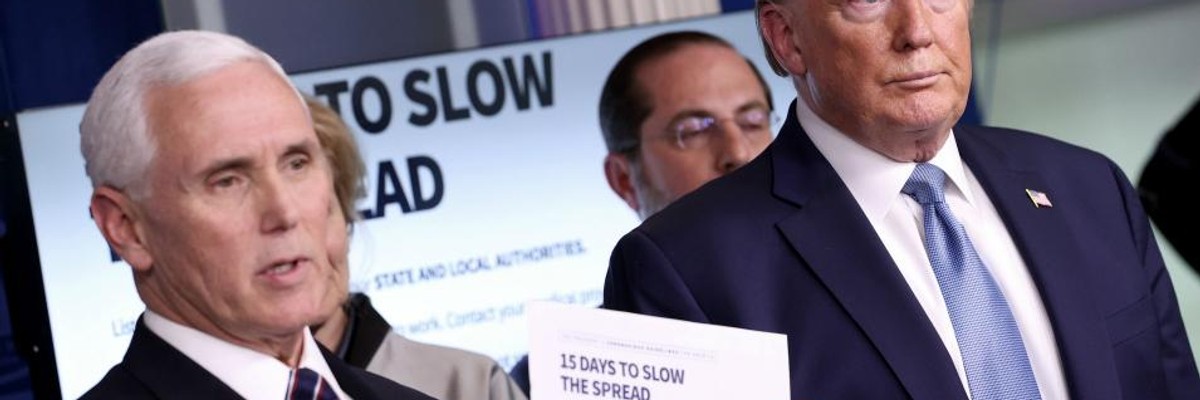An alarming scientific report compiled by British researchers and shared with the Trump White House warns that, in the absence of drastic and coordinated government action, the novel coronavirus could kill as many as 2.2 million people in the United States alone.
The new research (pdf), led by epidemiologist Dr. Neil Ferguson and published Monday by the Imperial College of London, shows that merely acting to slow rather than completely stop the spread of COVID-19 would "still likely result in hundreds of thousands of deaths and health systems (most notably intensive care units) being overwhelmed many times over."
"For countries able to achieve it, this leaves suppression as the preferred policy option," the researchers wrote. "In the U.K. and U.S. context, suppression will minimally require a combination of social distancing of the entire population, home isolation of cases, and household quarantine of their family members. This may need to be supplemented by school and university closures."
Successful suppression of the virus could take a significant amount of time, the researchers noted--"potentially 18 months or more."
The New York Timesreported late Monday that the researchers' "terrifying" projection of as many as 2.2 million possible deaths in the U.S. was shared with the White House's coronavirus task force last week, when President Donald Trump was still downplaying the threat posed by the COVID-19 outbreak.
"We don't have a clear exit strategy," Ferguson told the Times. "We're going to have to suppress this virus--frankly, indefinitely--until we have a vaccine. It's a difficult position for the world to be in."
Ferguson likened the possible health impacts of the COVID-19 pandemic to those caused by the 1918 influenza outbreak, which killed an estimated 675,000 people in the United States and tens of millions more worldwide.
The team of researchers "also shared its fatality estimates with the CDC," according to the Times, "including that eight to nine percent of people in the most vulnerable age group, 80 and older, could die if infected."
During a press conference on Monday, Trump falsely claimed that "nobody ever thought about" the coronavirus threat a month ago.
"This is a bad one," said Trump, who on Sunday recommended that people in the U.S. avoid gathering with more than 10 people. "This is a very bad one. This is bad in the sense that it's so contagious. It's just so contagious. Sort of, record-setting-type contagion."
In an interview with CNN Sunday, Harvard University epidemiology professor Marc Lipsitch said the coronavirus crisis "was foreseeable, and foreseen, weeks and months ago."
"Only now is the White House coming out of denial," said Lipsitch, "and heading straight into saying it could not have been foreseen."
